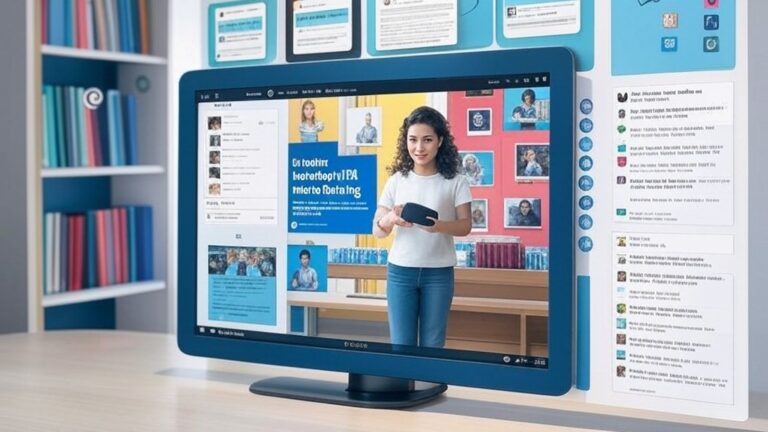
The Ultimate Guide to Educational Materials and Studies: Resources for Effective Learning
The Ultimate Guide to Educational Materials and Studies: Resources for Effective Learning

Education is the cornerstone of personal and professional growth. With the right educational materials and studies, learners can achieve their goals more effectively, whether in school, college, or lifelong learning. In this guide, we’ll explore what makes great educational materials, the benefits they offer, and how to choose the best resources for your needs.
What Are Educational Materials?
Educational materials are resources designed to facilitate learning and improve understanding of a subject. These materials range from physical books and worksheets to digital tools and online courses.
Types of Educational Materials:
- Textbooks: Foundational resources for structured learning.
- Worksheets and Practice Tests: Reinforce concepts and assess knowledge.
- Interactive Tools: Digital platforms like Khan Academy and Duolingo.
- Video Tutorials: Engaging visual explanations, such as YouTube EDU.
- Research Studies and Papers: Provide in-depth insights on specialized topics.
Benefits of Using Educational Materials
- Improved Understanding
- Well-structured materials simplify complex topics.
- Engagement and Motivation
- Interactive tools and visually appealing content keep learners engaged.
- Accessibility
- Online materials make education available anytime, anywhere.
- Personalized Learning
- Adaptive platforms cater to individual learning styles and speeds.
How to Choose the Right Educational Materials
1. Define Your Goals
- Are you preparing for an exam, teaching a class, or learning a new skill?
- Choose resources aligned with your objectives.
2. Consider Your Learning Style
- Visual learners may benefit from infographics and videos.
- Auditory learners may prefer podcasts or lectures.
3. Evaluate Credibility
- Ensure materials are created by reputable sources, such as universities or established educators.
4. Check for Updates
- Select materials that are current and relevant to today’s curriculum or trends.
5. Read Reviews
- Look for user feedback to gauge the quality and effectiveness of the resource.
Top Online Platforms for Educational Materials
- Khan Academy
- Free courses in math, science, and more.
- Coursera
- Offers university-level courses and certifications.
- Quizlet
- Flashcards and quizzes for exam preparation.
- edX
- Access to courses from top universities like Harvard and MIT.
- Google Scholar
- Find research papers and academic studies for in-depth learning.
Emerging Trends in Educational Materials & Studies
1. Gamification
- Adding game-like elements to learning, such as leaderboards and rewards.
2. AI-Powered Learning
- Adaptive tools like Duolingo tailor content to individual progress.
3. Virtual Reality (VR) and Augmented Reality (AR)
- Immersive learning experiences for subjects like history and science.
4. Open Educational Resources (OERs)
- Free, shareable content available online, such as OpenStax textbooks.
5. Collaborative Platforms
- Tools like Google Workspace for Education enable group projects and discussions.
SEO Tips for Educational Blogs
1. Perform Keyword Research
- Use tools like Ahrefs or SEMrush to find keywords related to Educational Materials and Studies.
- Examples: “best educational resources,” “top study materials,” and “learning tools for students.”
2. Optimize On-Page Elements
- Include your focus keyphrase in the title, headings, and meta description.
- Use structured data to enhance your blog’s visibility in search results.
3. Leverage Internal and External Links
- Internal Links: Link to related blog posts like “How to Create Study Plans” or “Top Online Learning Platforms.”
- External Links: Reference authoritative sources, such as UNESCO or Khan Academy.
4. Use Multimedia
- Add images, videos, and infographics to improve engagement.
- Optimize images with descriptive ALT tags, e.g., “infographic on study habits.”
5. Mobile Optimization
- Ensure your blog is responsive and easy to navigate on mobile devices.
How Educational Studies Complement Learning
Educational studies provide research-based insights into how people learn. These studies shape teaching methodologies and the development of effective materials.
Popular Educational Studies:
- Bloom’s Taxonomy: Framework for categorizing educational goals.
- Multiple Intelligences Theory: Identifies diverse learning styles.
- Cognitive Load Theory: Focuses on optimizing content delivery for better understanding.
Conclusion
Educational materials and studies are essential for effective learning and teaching. By leveraging credible resources and staying updated on emerging trends, you can enhance your learning experience or empower others. Whether you’re a student, teacher, or lifelong learner, the right tools can make all the difference.
